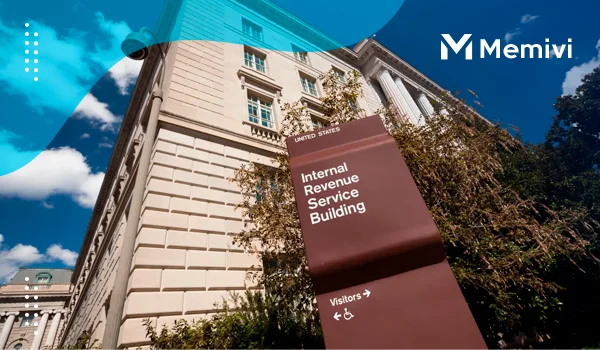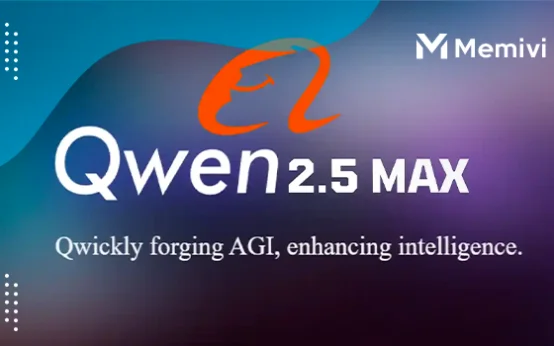
The Internal Revenue Service (IRS) is turning to artificial intelligence (AI) in their efforts to enforce tax regulations. In their sights are millionaires, partnerships, and cryptocurrency traders. The IRS is using AI to analyze data and identify tax evaders. With the help of advanced algorithms, the IRS is now able to detect suspicious financial activity and catch tax cheats. This is part of the IRS’s AI-Powered broader efforts to crack down on tax fraud and evasion.
In this blog post, we’ll dive into the IRS’s AI-powered enforcement plans and explore what it means for businesses and individuals who are subject to these regulations. We’ll also look at some of the ways that you can stay compliant and avoid getting caught up in the IRS’s enforcement efforts.
The IRS’s increasing focus on enforcing tax compliance
In an era where financial transactions are becoming more complex and technology is constantly evolving, the Internal Revenue Service (IRS) is stepping up its efforts to ensure tax compliance.
With the rise of millionaires, partnerships, and the emergence of cryptocurrencies, the IRS recognizes the need to adapt its enforcement strategies to effectively address these challenges.
Gone are the days when tax evasion could easily go unnoticed. The IRS is now leveraging the power of artificial intelligence (AI) to crack down on individuals and entities who attempt to evade their tax obligations.
Through advanced data analytics and machine learning algorithms, the IRS is able to identify patterns, anomalies, and potential non-compliance, enabling them to take targeted enforcement actions. The focus on millionaires is a strategic move by the IRS to tackle high-net-worth individuals who may have sophisticated tax planning strategies or engage in aggressive tax avoidance schemes. These individuals often have complex financial holdings, including investments in various industries and offshore accounts. By utilizing AI technology, the IRS aims to uncover hidden assets, unreported income, and any attempts to manipulate financial records.
Partnerships, too, have come under the IRS’s scrutiny. With the increasing popularity of partnerships as a business structure, the IRS is keen on ensuring that all partnership income is properly reported and taxed. AI-powered tools allow the IRS to analyze partnership tax returns, identify potential discrepancies, and detect any attempts to underreport income or overstate deductions.
The emergence of cryptocurrencies has presented a new set of challenges for tax authorities worldwide. The IRS has recognized the need to closely monitor cryptocurrency transactions to ensure proper reporting and taxation.
By leveraging AI algorithms, the IRS can trace blockchain transactions, identify cryptocurrency users, and cross-reference these transactions with tax returns. This enables the IRS to detect any attempts to conceal income or evade taxes through the use of cryptocurrencies.
Harnessing the power of IRS’s AI-Powered: How the plans to crack down on tax evasion
In a bold move to combat tax evasion, the Internal Revenue Service (IRS) has set its sights on harnessing the power of artificial intelligence (AI). With the rise of millionaires, complex partnerships, and the proliferation of cryptocurrencies, the IRS is stepping up its enforcement efforts to ensure that all taxpayers are meeting their obligations. Using cutting-edge technology, the IRS aims to enhance its ability to identify potential tax evasion schemes and enforce compliance.
By leveraging AI algorithms, the agency can analyze vast amounts of data, including financial transactions, digital footprints, and even social media activity, to uncover hidden sources of income and detect patterns indicative of tax evasion.
The advantages of AI in tax enforcement are manifold. Unlike traditional methods that rely heavily on manual intervention, AI-powered systems can quickly process and analyze massive amounts of information, enabling the IRS to efficiently identify potential tax evaders. By automating certain tasks, such as data collection and analysis, AI frees up valuable resources and allows IRS agents to focus on more complex investigations.
IRS’s AI-Powered data analytics: Identifying potential tax evaders
One of the most powerful tools in the IRS’s arsenal when it comes to cracking down on tax evaders is AI-powered data analytics. With the ever-increasing amount of financial data available, traditional methods of investigation can be time-consuming and inefficient.
However, AI technology has revolutionized the way the IRS identifies potential tax evaders. Through advanced algorithms and machine learning capabilities, AI can quickly sift through vast amounts of financial data to detect patterns and anomalies that may indicate potential tax evasion. This includes analyzing income and expense patterns, identifying discrepancies between reported income and actual transactions, and detecting suspicious offshore financial activities.
AI-powered data analytics not only enables the IRS to identify potential tax evaders but also allows for a more targeted and efficient enforcement approach. Instead of casting a wide net and auditing every taxpayer, AI can help pinpoint individuals or entities that are more likely to be engaged in tax evasion, saving valuable time and resources.
Furthermore, the use of AI technology enhances the IRS’s ability to stay one step ahead of sophisticated tax evasion schemes. As tax evaders become more sophisticated in their methods, the IRS must adapt and evolve its enforcement strategies. AI-powered data analytics can help uncover new patterns and trends in tax evasion, allowing the IRS to proactively address emerging threats.
Machine learning algorithms: Detecting suspicious transactions and patterns

Machine learning algorithms are revolutionizing the way the IRS detects suspicious transactions and patterns in the world of millionaires, partnerships, and crypto. With the rise of sophisticated financial schemes and the increasing complexity of digital currencies, traditional methods of investigation are no longer sufficient.
The IRS has turned to artificial intelligence to level the playing field. These machine learning algorithms are designed to analyze vast amounts of data, identifying anomalies and patterns that human investigators may miss.
By utilizing advanced data analytics techniques, the IRS can detect unusual transactions, hidden partnerships, and potential tax evasion schemes with greater accuracy and efficiency.
One of the key advantages of machine learning algorithms is their ability to continuously learn and adapt. As financial criminals evolve their tactics, the algorithms evolve as well, staying one step ahead. This adaptive nature allows the IRS to stay proactive in its enforcement efforts, ensuring that no suspicious activity goes unnoticed.
Ensuring tax compliance: Tips for individuals and businesses
Ensuring tax compliance is essential for individuals and businesses alike. With the IRS’s AI-powered enforcement plans, it becomes even more crucial to stay on top of your tax responsibilities. Here are some tips to help you navigate the complex world of taxes and avoid any potential issues:
- Keep accurate records: Maintaining meticulous records is the foundation of proper tax compliance. Whether you are an individual or a business owner, it is essential to keep track of all income, expenses, and relevant documents. This will help you accurately report your financial activities and ensure that you are not missing any deductions or credits.
- Understand your tax obligations: Stay informed about the tax laws and regulations that apply to your specific situation. Tax obligations can vary depending on factors such as your income level, business structure, and industry. Take the time to research and consult with tax professionals to ensure you are aware of all the requirements and deadlines relevant to your situation.
- Seek professional assistance: Taxes can be complex, especially when dealing with partnerships or cryptocurrencies. Consider working with a qualified tax professional who can provide guidance and help you navigate the intricacies of tax compliance. They can assist with tax planning, ensure accurate reporting, and help you maximize deductions while staying within the boundaries of the law.
- Regularly review tax laws and updates: Tax laws are subject to change, and it is crucial to stay updated with any revisions or new regulations that may affect your tax obligations. The IRS regularly provides updates and resources on their website, and it is beneficial to review these materials periodically or subscribe to relevant newsletters for the latest information.
- File and pay on time: Meeting tax filing and payment deadlines is vital to avoid penalties and interest charges. Make sure you understand the due dates for your tax returns, extensions, and estimated tax payments. Utilize technology or software that can help streamline the process and ensure timely submission.
- Be proactive in addressing any issues: If you encounter any discrepancies or issues related to your taxes, it is best to address them promptly. Ignoring problems will only exacerbate the situation. Reach out to the IRS or a tax professional to seek guidance and rectify any errors or disputes.
By following these tips, you can navigate the tax landscape with confidence and ensure compliance with the IRS’s AI-powered enforcement plans. Remember, staying informed, organized, and proactive is key to avoiding any unnecessary complications or penalties related to your tax obligations.
Final Thoughts
In conclusion, the future of IRS enforcement is set to be revolutionized by the integration of artificial intelligence (AI) technology. The IRS’s plans to utilize AI-powered tools and algorithms to crack down on millionaires, partnerships, and crypto-related tax evasion is a significant development in the realm of tax enforcement.
With the vast amount of data available to the IRS, traditional manual methods of identifying tax fraud and evasion have become increasingly inadequate. The implementation of AI will enable the IRS to efficiently analyze large volumes of data, identify patterns, and detect potential tax violations with greater accuracy and speed.
nd ensures adequate protection for your vehicle.


 Valentine’s Day: The 23+ best Valentine’s Day gifts in 2025 <p class='sec-title' style='line-height: normal; font-weight: normal;font-size: 16px !important; text-align: left;margin-top: 8px;margin-bottom: 0px !important;'> Valentine's Day is approaching, and it's time to find that perfect gift to express your love in 2025. </p>
Valentine’s Day: The 23+ best Valentine’s Day gifts in 2025 <p class='sec-title' style='line-height: normal; font-weight: normal;font-size: 16px !important; text-align: left;margin-top: 8px;margin-bottom: 0px !important;'> Valentine's Day is approaching, and it's time to find that perfect gift to express your love in 2025. </p>  AIibaba AI Qwen 2.5-Max: boost your advertising revenue <p class='sec-title' style='line-height: normal; font-weight: normal;font-size: 16px !important; text-align: left;margin-top: 8px;margin-bottom: 0px !important;'> The digital advertising landscape is transforming rapidly, and AIibaba AI Qwen 2.5-Max stands at the forefront of this revolution. </p>
AIibaba AI Qwen 2.5-Max: boost your advertising revenue <p class='sec-title' style='line-height: normal; font-weight: normal;font-size: 16px !important; text-align: left;margin-top: 8px;margin-bottom: 0px !important;'> The digital advertising landscape is transforming rapidly, and AIibaba AI Qwen 2.5-Max stands at the forefront of this revolution. </p>  AI-based entrepreneurship: The power to change the consumer consciousness <p class='sec-title' style='line-height: normal; font-weight: normal;font-size: 16px !important; text-align: left;margin-top: 8px;margin-bottom: 0px !important;'> In the rapidly evolving landscape of technology, AI-based entrepreneurship stands out as a game-changer. </p>
AI-based entrepreneurship: The power to change the consumer consciousness <p class='sec-title' style='line-height: normal; font-weight: normal;font-size: 16px !important; text-align: left;margin-top: 8px;margin-bottom: 0px !important;'> In the rapidly evolving landscape of technology, AI-based entrepreneurship stands out as a game-changer. </p>